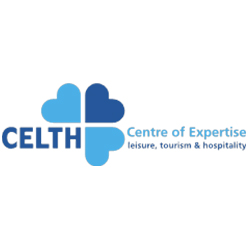In this policy brief we recommend that in order to face numerous societal challenges such as migration and climate change, regional governments should create a culture of innovation by opening up themselves and stimulate active citizenship by supporting so called Public Sector Innovation (PSI) labs. These labs bring together different types of stakeholders that will explore new solutions for societalchallenges and come up with new policies to tackle them. This method has been developed and tested in a large EU funded research project.
DOCUMENT

Using survey data gathered among Dutch public sector management accountants, this contribution shows that appreciative skills and personal skills are considered the most important competencies of these professionals. The authors found gaps between the assigned importance and the actual level of competencies in the fields of interpersonal skills and technical skills. As well, there were differences between age groups.
DOCUMENT

At first glance, Public Sector Innovation (PSI) Labs are gaining prominence within academic literature, the European Union (EU) and beyond. However, because of the relative newness and conceptual ambiguity of this concept, the exact contribution of these labs to theory and practice is still unclear. In addition, most research has been looking at case studies. This publication breaks new ground by elaborating on the concept and also by looking at the perception of these labs in different contexts, by comparing multiple labs in multiple countries. In doing so, we raised the question: ‘What is the perceived added value of Public Sector Innovation labs for further developing theory as well as for society?’ In order to answer this question, by way of an experiment, we combined theoretical research together with focus groups with members of the EU funded project Multi Disciplinary Innovation for Social Change (SHIINE) in combination with questionnaires to selected PSI labs, thus providing us with rich data. Our experimental methodology uncovered a conceptual bias that is probably existent in similar studies and needs to be acknowledged more. In addition, we found that PSI labs have developed over time into an amalgam of two competing concepts. To conclude, we believe that the specific potential of PSI labs as an internal space for innovation within institutions is underutilised. We believe this could be improved by acknowledging the specific aim of PSI labs in a co-creative setting between relevant stakeholders, such as Higher Education Institutions (HEIs).
DOCUMENT
Dit project richt zich op het verkennen van de toepasbaarheid van 3D-printen met siliconen voor de productie van op maat gemaakte gehoorbescherming, zoals oordoppen en otoplastieken. Siliconen zijn vanwege hun huidvriendelijkheid en flexibiliteit het geschikt voor gebruik in deze sector, maar traditionele productiemethoden zijn arbeidsintensief en moeilijk schaalbaar. 3D-siliconenprinten biedt potentie om deze processen te optimaliseren door efficiëntere, flexibelere en gepersonaliseerde productie mogelijk te maken zonder de noodzaak van mallen. Pluggerz, producent van gehoorbescherming, ziet in deze technologie een kans om hun productieproces te vernieuwen. Samen met Detax, leverancier van hoogwaardige siliconenmaterialen, en Hogeschool Saxion wordt in een éénjarig praktijkgericht onderzoek onderzocht hoe deze technologie kan bijdragen aan een hogere productkwaliteit, kortere productietijd en betere pasvorm. De centrale onderzoeksvraag luidt: Hoe kan 3D-siliconenprinttechnologie optimaal worden ingezet voor de productie van op maat gemaakte gehoorbeschermingsproducten, rekening houdend met materiaalkeuze, printparameters en productkwaliteit? Het project is opgebouwd uit vijf werkpakketten: analyseren van huidige processen en technologieën, experimenteren met materialen en ontwerpen, valideren van prototypes, implementatie in productieprocessen en kennisdisseminatie binnen de sector. Door het ontwikkelen, testen en verbeteren van prototypes wordt niet alleen technologische kennis opgebouwd, maar ook praktische toepasbaarheid onderzocht. Het project draagt bij aan kennisontwikkeling binnen het netwerk en onderwijs, met betrokkenheid van studenten en docenten. De verworven inzichten worden gedeeld via publicaties en vakbijeenkomsten. Daarmee vormt dit project een belangrijke stap richting een toekomst waarin hoogwaardige, gepersonaliseerde gehoorbescherming voor een brede doelgroep beschikbaar en betaalbaar wordt gemaakt via innovatieve 3D-printtechnologie.
De glastuinbouw in Nederland is wereldwijd toonaangevend en loopt voorop in automatisering en data-gedreven bedrijfsvoering. Voor de data-gedreven teelt wordt, naast het monitoren van de kas-parameters ook het monitoren van gewasparameters steeds meer gevraagd. De sector is daarbij vooral geïnteresseerd in niet-destructieve, contactloze en persoonsonafhankelijk monitoring van gewassen. Optische sensortechnologie, zoals spectrale afbeeldingstechnologie, kan veel waardevolle informatie opleveren over de staat van een gewas of vrucht, bijvoorbeeld over het suikergehalte, maar ook de aanwezigheid van plantziektes of insecten. Echter is dit vaak een te kostbare oplossing voor zowel de technologiebedrijven die oplossingen leveren als voor de telers zelf. In dit project onderzoeken wij de mogelijkheid om spectrale beeldvorming tegen lagere kosten te realiseren. Het beoogde resultaat is een prototype van een instrument dat tegen lage kosten met spectrale beeldvorming een of meerdere gewaseigenschappen kan kwantificeren. Realisatie van dit prototype heeft een sterke Fotonica-component (expertise Haagse Hogeschool) maakt gebruik van Machine Learning (expertise perClass) en is bedoeld voor toepassing op scout robots in de glastuinbouw (expertise Mythronics). Een betaalbare oplossing betekent in potentie voor de teler een betere controle over kwaliteit van het gewas en automatisering voor detectie van ziekte-uitbraken. Bij een succesvol prototype kan deze innovatie leiden tot betere voedselkwaliteit en minder verspilling in de glastuinbouw.
Centre of Expertise, part of Breda University of Applied Sciences, NHL Stenden Hogeschool, HZ University of Applied Sciences
